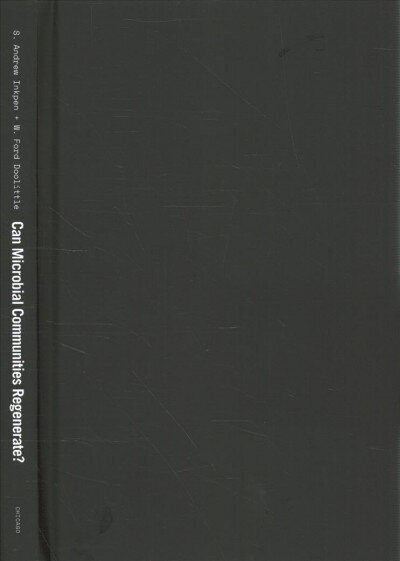"You take antibiotics to fight an infection. Unfortunately, the treatment also kills the community of bacteria in your gut microbiome; you now have digestion issues. You might start eating yogurt to reintroduce good bacteria. Or, if the bacterial community is more significantly disordered, you might need a "fecal microbiota transplant" - a doctor transfers stool from a healthy donor into your gut. The new bacteria community thrives, and you can again digest your food. If all the same types of bacteria are present in this new community, has your microbiome "regenerated"? What if the bacteria are completely different, but they perform the same function? How do the answers to these questions change if we look at the cells in a regrown salamander limb or theflora in a replanted forest? In this second book in the Regeneration Series, a philosopher of science and molecular biologist, S. Andrew Inkpen and W. Ford Dolittle, investigate these questions and their consequences. As the examples above show, asking about whether microbial communities can regenerate, what that might mean, and why it matters is not just an academic question. Offering provocations and an understanding that go beyond the descriptive work that has been published to date, this book offers an accessible conceptual and theoretical understanding of regeneration and evolution in microbial communities that will be useful across disciplines including in philosophy of biology, conservation biology, microbiomics, evolutionary biology, and community ecology"--
By investigating a simple question, a philosopher of science and a molecular biologist offer an accessible understanding of microbial communities and a motivating theory for future research in community ecology. Microorganisms, such as bacteria, are important determinants of health at the individual, ecosystem, and global levels. And yet many aspects of modern life, from the overuse of antibiotics to chemical spills and climate change, can have devastating, lasting impacts on the communities formed by microorganisms. Drawing on the latest scientific research and real-life examples such as attempts to reengineer these communities through microbial transplantation, the construction of synthetic communities of microorganisms, and the use of probiotics, this book explores how and why communities of microorganisms respond to disturbance, and what might lead to failure. It also unpacks related and interwoven philosophical questions: What is an organism? Can a community evolve by natural selection? How can we make sense of function and purpose in the natural world? How should we think about regeneration as a phenomenon that occurs at multiple biological scales? Provocative and nuanced, this primer offers an accessible conceptual and theoretical understanding of regeneration and evolution at the community level that will be essential across disciplines including philosophy of biology, conservation biology, microbiomics, medicine, evolutionary biology, and ecology.
